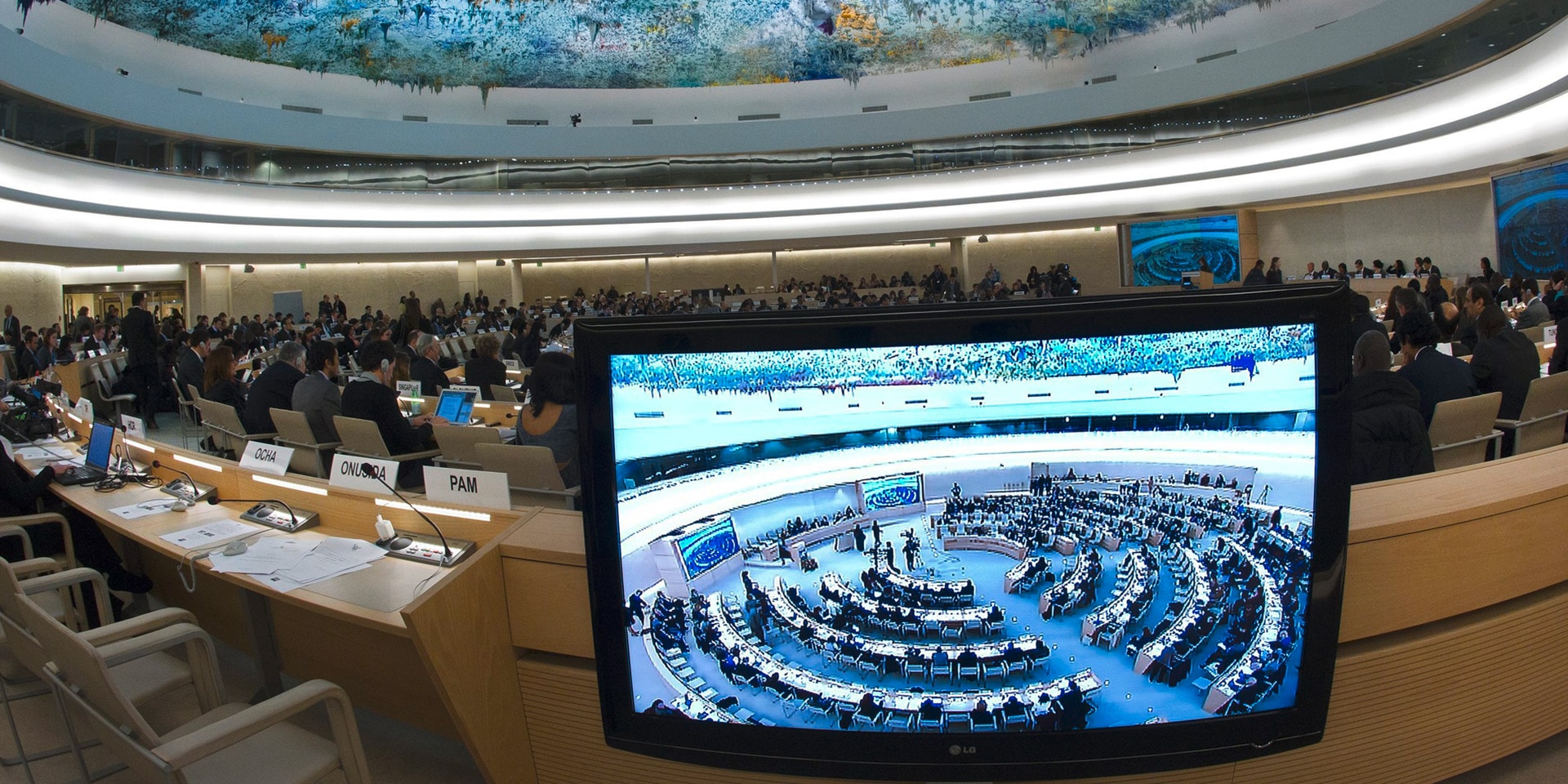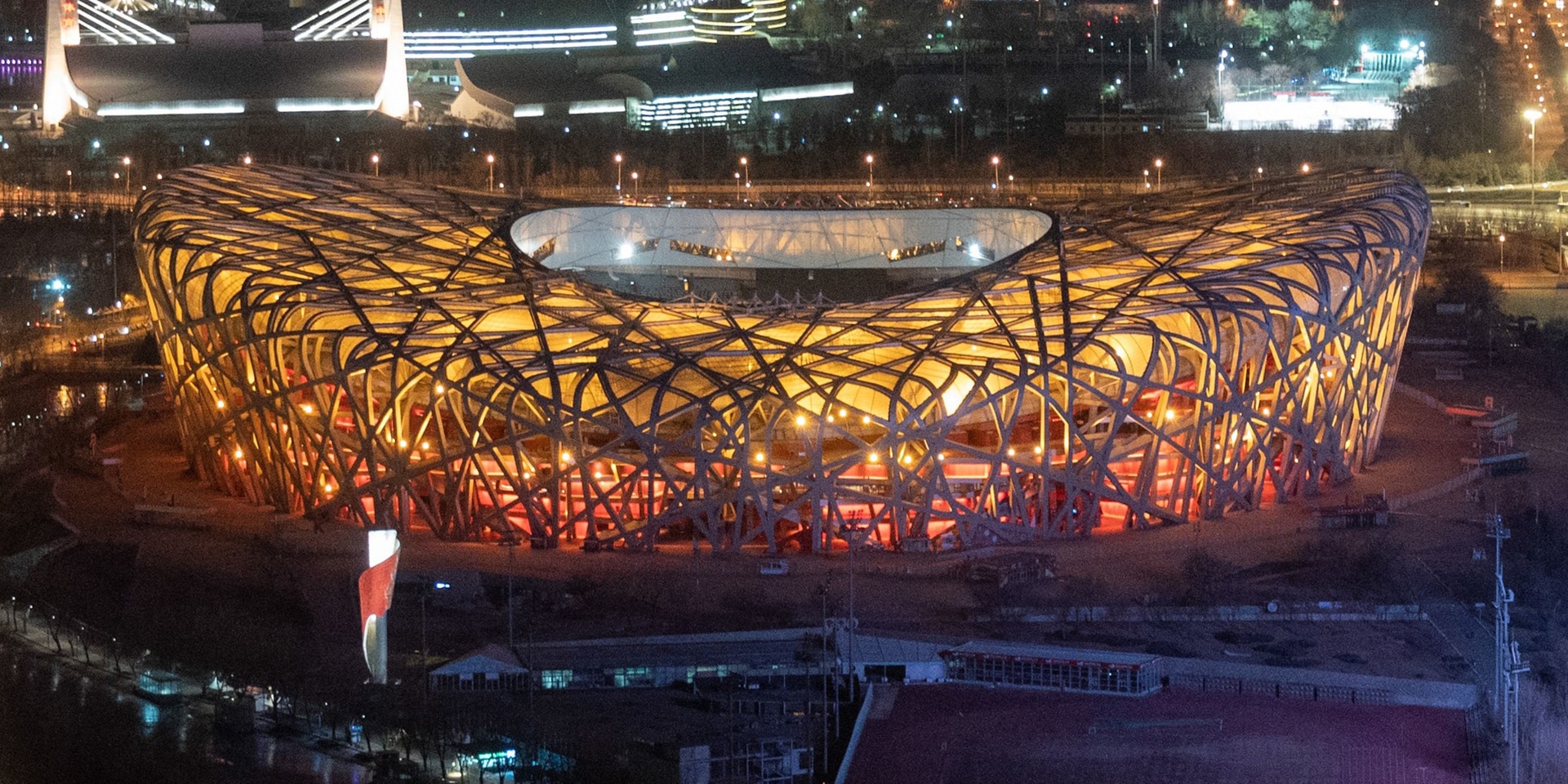Human rights dialogue with China: instruments of Swiss diplomacy
The 17th instalment of the human rights dialogue with China was held on 3 and 4 July in Switzerland. Switzerland remains firmly committed to the universal protection of human rights in China and throughout the world. A brief overview of the recent meeting and the instruments of Switzerland's human rights diplomacy.
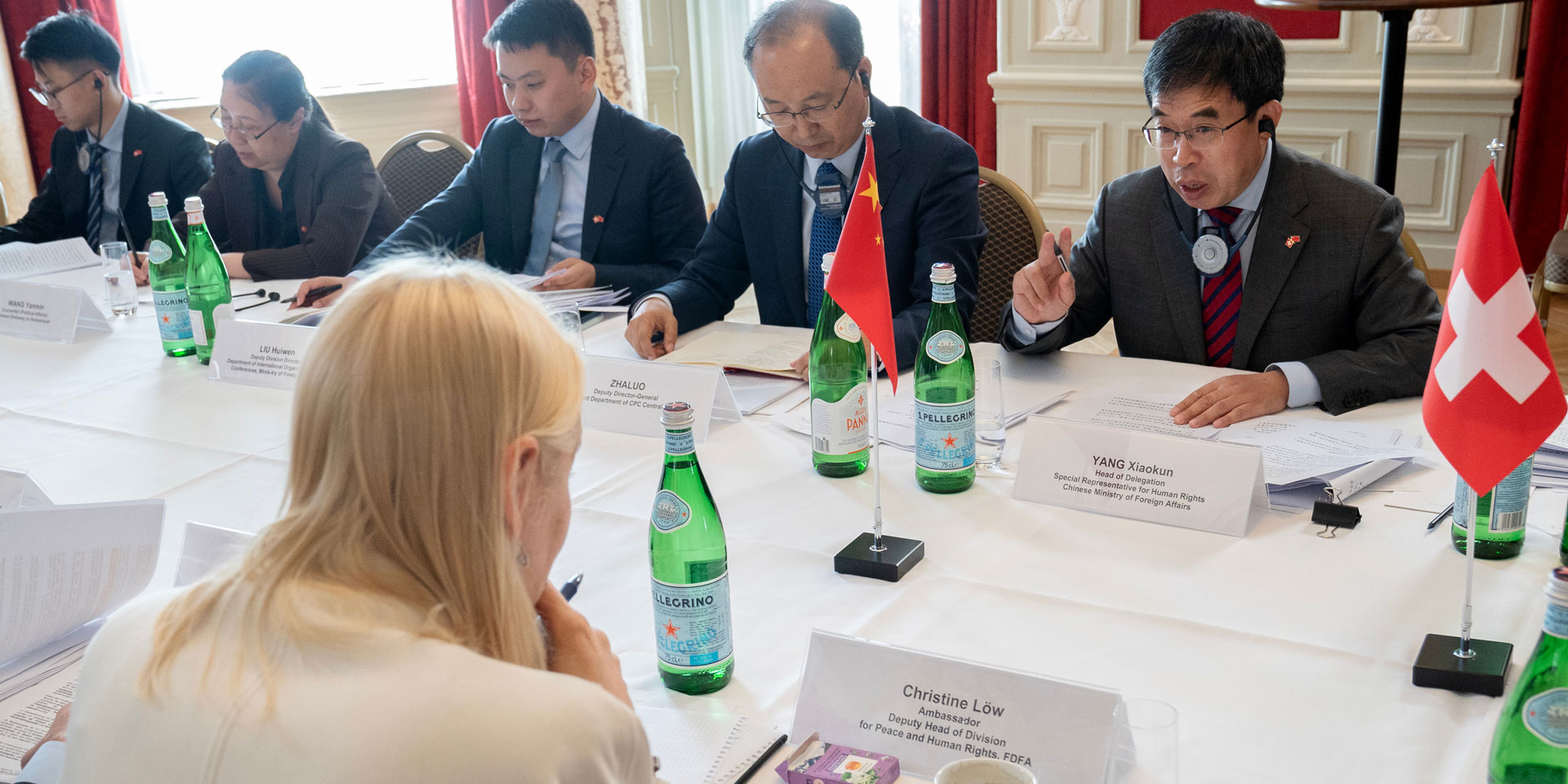
Christine Löw, deputy head of the FDFA's Peace and Human Rights Division, led the Swiss delegation. The Chinese delegation was led by Yang Xiaokun, Special Representative for Human Rights of China's Ministry of Foreign Affairs. © FDFA
The latest round of the human rights dialogue between Switzerland and China took place in Bern. A number of priority topics were discussed with the delegation, which consisted of representatives from various Chinese ministries. The talks included civil and political rights, economic, social and cultural rights, the rights of national or ethnic, religious and linguistic minorities, as well as the rights of women and LGBTI people. Specific contexts of human rights violations in relation to Tibetans, Uyghurs or in Hong Kong, were also discussed.
The recent meeting included an exchange between experts and an on-site visit: a series of examples to illustrate Switzerland's expertise in the field of human rights.
Exchanges between experts
Discussions held over the years as part of this dialogue have led to the development, since 2003, of regular exchanges between experts in the field of prison management. "Despite the significant political and social differences between China and Switzerland, there are numerous common starting points for discussions on the execution of sentences. This fosters and enhances mutual exchanges," explains Walter Troxler, who oversees the Swiss–Chinese exchanges on the execution of sentences. These exchanges between experts occur at irregular intervals, alternating between China and Switzerland, and involve enforcement professionals, prison administrators, and representatives from the respective foreign affairs departments.
In addition to prison visits, targeted workshops facilitated discussions on specific themes. These included pre-release preparation and follow-up, disciplinary measures, training and education, and leave, training, and employment opportunities, explains Walter Troxler. Recent discussions have centred on topics such as risk management in closed and semi-open prisons, as well as the execution of sentences imposed on women and young people.
The Chinese side has shown great interest in our system for the enforcement of sentences and other measures. Over the years, we have observed several changes and improvements in the Chinese penal system, which are partly attributable to our joint exchanges," concludes Troxler.
On-site visit to the canton of Jura
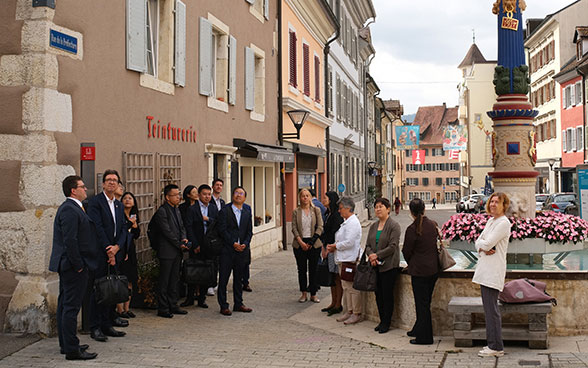
The two delegations travelled to Delémont, where they met Jean-Christophe Geiser, the official mediator for the Jura question at the Federal Office of Justice. By sharing this chapter of Swiss history with the Chinese delegation, Switzerland underscored how its approach to a territorial conflict involving linguistic, cultural, and religious factors can offer valuable lessons at an international level," explains Jean-Christophe Geiser.
The Jura question was Switzerland's most significant internal conflict after the Second World War. It took several referendums to resolve the Jura question, culminating in the planned transfer of Moutier to the canton of Jura in 2026. "Unlike other territorial disputes, this particular conflict revolved around the secession of a portion of a canton within a federal state, rather than the secession part of the territory of a state," explains Geiser. "But the flexibility and responsiveness of the authorities involved, both federal and cantonal, effectively averted any escalation of the conflict," the legal expert concludes.
Instruments of Swiss human rights diplomacy
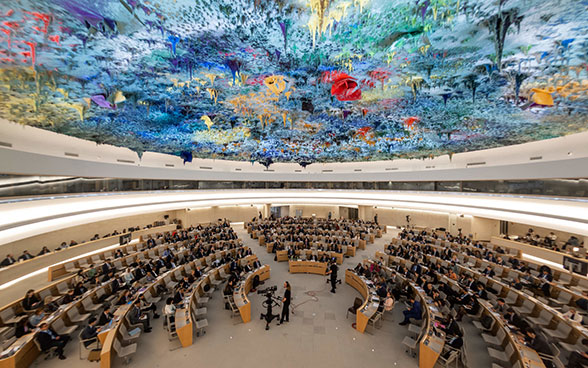
Swiss human rights diplomacy encompasses a diverse range of instruments, with the dialogue representing just one facet of its approach. Switzerland engages with China through bilateral initiatives that address individual cases and high-level talks, with the Swiss embassy in Beijing playing a pivotal role in these interactions.
Switzerland regularly advocates for the rights of human rights defenders and legal professionals facing persecution or conviction in China. This is supplemented by on-site visits to various regions across China, where Swiss diplomats monitor the situation on the ground and engage in dialogue with civil society.
At the multilateral level, Switzerland actively contributes to the protection of human rights through its involvement in the Human Rights Council. It consistently voices its stance on China's human rights situation at the UN General Assembly, either independently or in collaboration with like-minded partner states. Since 2019, joint statements have regularly focused on the situation in the Xinjiang region of China. Switzerland has called for an end to the persecution of the Uighurs and for their rights as a distinct ethnic, religious, and linguistic minority to be respected. The Universal Periodic Review (UPR) serves as a key instrument for the United Nations Human Rights Council. China is scheduled for review in 2024, in which Switzerland will also make recommendations.
The Human Rights Dialogue with China also provided an opportunity to discuss economic issues and the impact of business activities on human rights. These included China's recent ratification of the Forced Labour Convention 1930 (No. 29), and Labour Inspection Convention 1947 (No. 81). Based on its National Action Plan on Business and Human Rights 2020–23, Switzerland promotes the implementation of due diligence measures to identify risks of human rights violations and forced labour in supply chains.

